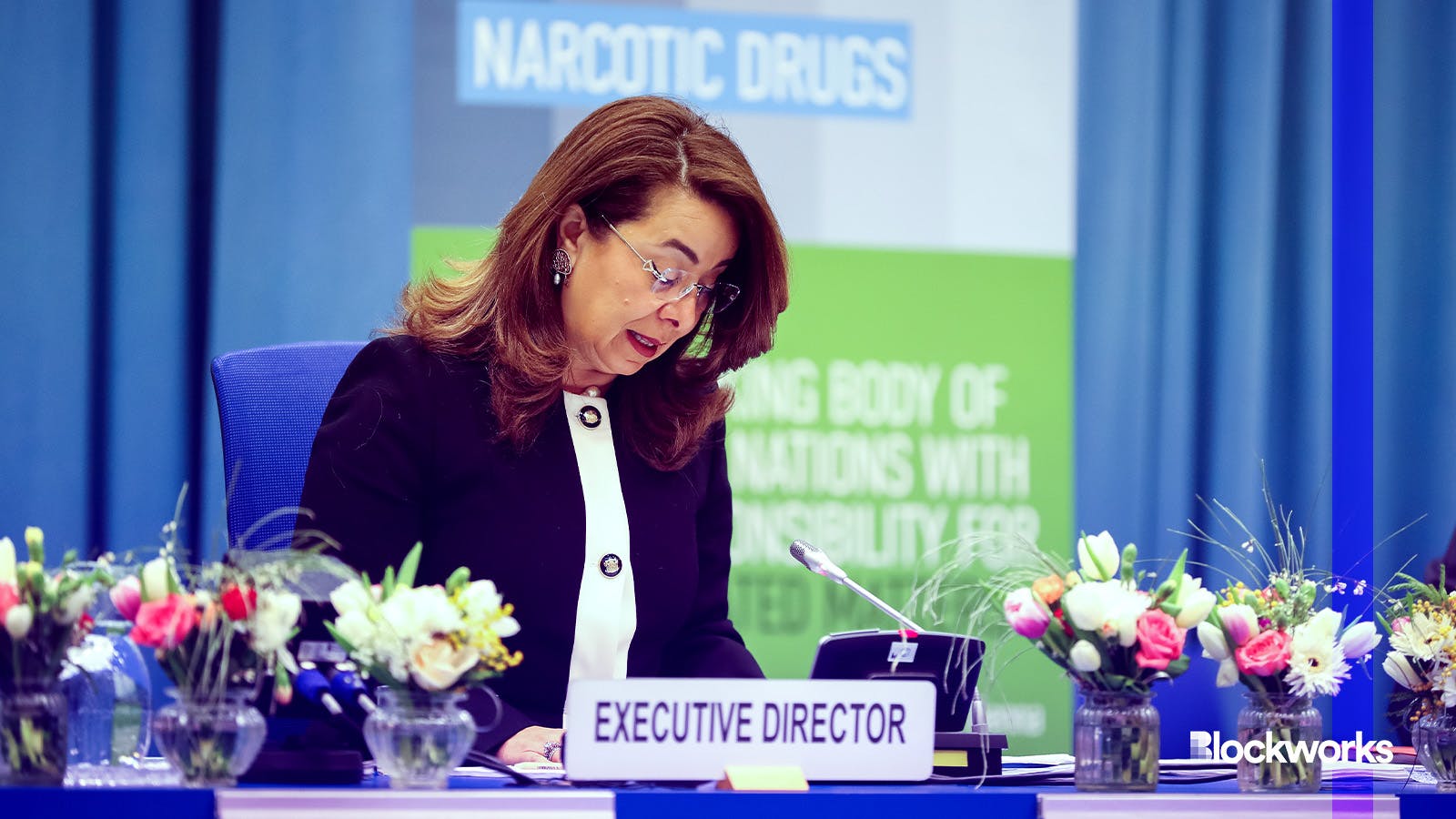Tether says UN needs more blockchain education in response to USDT report
The UN said USDT is among the most used tools for illicit financing, but the stablecoin issuer says the report ignores its benefits

Executive Director of the United Nations Office on Drugs and Crime Ghada Fathi Waly | UNODC/Max Brucker/"MGB18192″ (CC license)
Stablecoin issuer Tether and its custodian Cantor Fitzgerald are fighting back against claims from the United Nations that Tether’s USDT is one of the “most popular” vehicles for illicit financial activity.
“USDT on the TRON155 blockchain has become a preferred choice for regional cyberfraud operations and money launderers alike,” UN staff wrote in a report released Monday.
Between September 2022 and September 2023, there were transactions totalling more than 17 billion USDT “connected to underground currency exchanges, illegal commodity trades, unlawful collection and payment processes and various criminal activities,” the report added, citing data from Bitrace.
In a Monday blog post, Tether wrote that the company is “disappointed” the UN chose to “single out” USDT “while ignoring its role in helping developing economies in emerging markets.”
Read more: Tether receives ‘constrained’ assessment from S&P Global
Cantor Fitzgerald, the investment bank and brokerage that custodies Tether’s assets, also chimed in Tuesday. CEO Howard Lutnick said that the company has “what they say they have” in terms of reserves.
“I’ve seen a whole lot and the firm has seen a whole lot and they have the money. And so there has always been a lot of talk [about] ‘Do they have it or not?’” Lutnick said during an interview at the Davos conference Tuesday. “I’m here with you guys and I’m telling you we’ve seen it and they have it.”
While the UN’s Monday report does not question the status or existence of USDT’s reserves — Tether maintains each is backed one-to-one with US dollars — the company has long faced speculation that it does not maintain reserves.
In a recent attestation, released quarterly, Tether reported an excess of $3.2 billion in reserves at the end of the third quarter of 2023. The report was cosigned by auditing firm BDO Italian, which Tether hired in August 2022. Tether had previously retained New York-based auditor Friedman LLP in 2017 and 2018 before “dissolving” its relationship. In September 2022, Friedman settled charges with the US Securities and Exchange Commission related to securities laws violations and improper conduct.
Read more: 16 months later, Tether finally bends to OFAC
“We believe the UN could benefit from an expanded understanding of blockchain technology and the immense improvements it offers with respect to fighting financial crime,” Tether added in its UN response Monday. “We encourage a proactive learning approach and believe it is vital for a more informed environment, and are happy to support the UN in gaining more understanding.”
The company also invites UN staff to “engage in collaborative dialogue,” similar to conversations Tether says it has had with the US Department of Justice, the post added.
Get the news in your inbox. Explore Blockworks newsletters:
- The Breakdown: Decoding crypto and the markets. Daily.
- 0xResearch: Alpha in your inbox. Think like an analyst.






